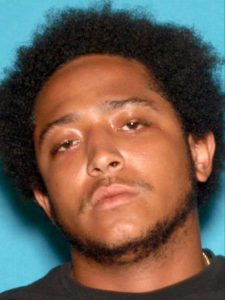The Los Angeles Police Commission, the citizen panel that oversees the police department, will hold community meetings today and Thursday to discuss the development of rules governing the use of body cameras.
Mayor Eric Garcetti recently announced a nearly $10 million plan to
purchase 7,000 body cameras by 2016, equipping all LAPD officers with the devices to document interactions with the public, including those in Venice.
The city has already purchased about 800 body cameras for officers in the Newton, Mission and Central divisions.
Police officials said they do not plan to use the cameras until a policy
is in place mandating where and when the devices will be used and what should done with the recordings.
The meetings are set for 6:30 p.m. today at the Green Meadows Recreation Center, 431 E. 89th St., and 6:30 p.m. Thursday at the A.G.B.U. Manoogian-Demirdjian School, 6844 Oakdale Ave., Canoga Park.
Attorneys with the American Civil Liberties Union published a blog post Tuesday saying officers involved in fatal shootings or other uses of force should not be allowed to view the body camera recordings prior to giving statements to investigators.
“Any detective would be the first to say that it’s hardly a solid
investigative practice to let the subject of an investigation view the video evidence you have over and over before you even ask them what happened,” attorneys Peter Bibring and Jay Stanley wrote in the post.
They added that “if an officer is inclined to lie or distort the truth
to justify a shooting, showing an officer the video evidence before taking his or her statement allows the officer to lie more effectively, and in ways that the video evidence won’t contradict.”
The ACLU attorneys noted that LAPD officials use a similar rationale
when withholding autopsy results of a person killed by police officers,
contending that the release of such information would taint the testimony of witnesses who have yet to come forward.
Some jurisdictions, such as Oakland the Los Angeles County Sheriff’s
Department, already bar officers from viewing recorded footage ahead of time, Bibring said.
Oakland, where body cameras have been in use for four years, has a
policy that prohibits officers from viewing the footage before being
interviewed by investigators, while the Sheriff’s Department also recently adopted a policy for jail cameras that requires deputies to write their reports before viewing the recordings.
The LAPD’s 2009 policy for in-car digital cameras, which could serve as a model for the body camera policy, recommends officers involved in use-of- force incidents review footage whenever possible before being interviewed by investigators.
The Youth Justice Coalition, a group that represents people whose familymembers were killed by police, has come out against the use of body cameras by the LAPD.
Kim McGill, a spokeswoman for the group, said the plan does not serve the public, who “will not own the footage.” Rather, the recorded evidence “goes through the police department, which collects it, stores it, analyzes it and sometimes distorts it or erases it,” she said.
The cameras would only add “another layer” of policing and
surveillance already experienced by “communities of color,” McGill said.
The group also believes that the nearly $10 million price tag for body
cameras could be better spent on parks, playgrounds, intervention workers and other services, she said.
The Los Angeles Police Commission, which can be reached by calling (213) 236-1400, is also circulating a survey on body cameras, with public input due by Friday. The survey was emailed to at least 1,000 people who are signed up to receive agendas and other information from the commission, as well as participants of Community-Police Advisory Boards.
The questions are:
– When should officers turn the camera on and under what circumstances should they turn them off?
– Are there instances or locations where you believe recordings should not take place?
– How should the LAPD protect the privacy of those individuals who are recorded on video?
– Do you believe officers should be able to view the video prior to
writing the necessary reports?
– Do you believe that department supervisors should regularly review the video captured to ascertain opportunities for improved training?
The survey also asks for any other comments that respondents would like to provide and questions they believe the Police Commission should ask the LAPDas the development of the policy is reviewed.
Responses to the questions can be submitted to Body-WornCameraSurvey@lapd.lacity.org .
The Los Angeles Police Department is doing a separate survey at
surveymonkey.com/s/LAPDBodyWornVideo.
























